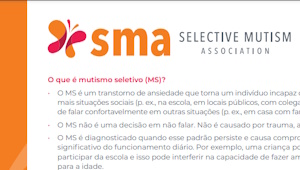Online Library
Independent Education Evaluations
Independent Educational Evaluations
Implications of IDEA Regulations
by Andrea Canter, NCSP & John Desrochers
Overview: Provisions of IDEA ’97 for Independent Evaluations
It is not uncommon for parents to disagree with the results of a school district’s evaluation of their child, or to seek an evaluation independent of any conducted by the school district. The Individuals with Disabilities Education Act (IDEA) makes an important provision for parents to seek an independent evaluation at the school district’s expense whenever the parents disagree with the evaluation obtained by the district. When a parent requests such an independent evaluation, the school must either provide it at public expense or initiate a due process hearing to show that its evaluation is appropriate. Moreover, if at any time when, during a due process hearing, a hearing officer orders an independent evaluation, that evaluation must also be at public expense. The aim of this provision is to ensure that parents have recourse to a second opinion regarding special education identification and programming for their children.
By definition, an “independent educational evaluation” (IEE) is one conducted by a qualified professional who is not an employee of the school district. “At public expense” means that either the school district directly pays for the evaluation or that the evaluation is otherwise obtained at no cost to the parent (e.g., through third party reimbursement). The provisions in federal regulation (§300.502 (b) (2)) specify the conditions under which an IEE is to be conducted at public expense, the qualifications of individuals conducting the IEE and standards for the IEE. Indirectly, the regulations also specify the criteria for determining if a district evaluation is “appropriate,” an essential consideration in determining the district’s obligation to provide or reimburse for an IEE.
When is a District Required to Provide an IEE?
The local education agency (LEA) or district is required by IDEA’s regulations to obtain an independent evaluation “without unnecessary delay” when parents disagree with the district’s own evaluation—or hold a hearing to prove that the district evaluation is appropriate. Thus the provision for an IEE can not be invoked by a parent who has refused to consent to a district evaluation, but only after disagreeing with a district-conducted evaluation. Parents who request reimbursement for privately obtained evaluations— without first seeking an evaluation through the district—are not likely to prevail unless they can prove that the district ignored or refused requests for evaluation. Section §300.502 (b)(4) notes that “the public agency may ask for the parent’s reason why he or she objects to the public evaluation. However, the explanation by the parent may not be required and the public agency may not unreasonably delay either providing the independent educational evaluation at public expense or initiating a due process hearing to defend the public evaluation.”
Who is Qualified to Provide an IEE?
Difficulties and misunderstandings between parents and school districts arise when the parents choose an evaluator who is unfamiliar with special education procedures and the linkage between assessment and intervention in schools. It is a school district’s responsibility to help ensure, to the greatest extent possible, that parents access independent evaluators who are qualified to perform the required evaluation and who have the training and experience needed to collaborate with school staff in developing programs and interventions for students.
Federal IDEA regulations recognize the school district’s role in safeguarding the standard of care afforded students in the evaluation process by stipulating that the independent evaluator must be qualified and that the independent evaluation must meet the district’s criteria for such evaluations (§300.502(e)(1)). Specifically, the qualifications of the independent examiner must be the same as the criteria for examiner qualifications that the district uses when it initiates an evaluation. This provision is meant to further safeguard the parent by ensuring the appropriateness of qualifications of independent evaluators and is not meant to encourage the imposition of conditions that interfere with the parents’ right to the independent evaluation.
Many districts have no written policy regarding qualifications to conduct evaluations; however, states often have regulations covering qualifications of personnel and districts may also have policies regarding licensure of personnel who perform specific duties. For example, if district policy requires that intellectual assessments are conducted by licensed or certified school psychologists, those qualifications most likely would be regarded as the criteria for selecting an independent evaluator. Similarly, if the district requires motor assessments to be completed by a licensed physical therapist, then an individual with the same training and credentialing should conduct the independent evaluation of motor skills. If the parents obtain an assessment from an individual who does not meet district
qualifications, it is unlikely that they could obtain reimbursement for those services.
Standards for the IEE
IDEA regulations require that independent evaluations meet the same criteria the school district establishes for evaluations performed within the district. This includes adherence to regulations regarding the evaluation itself—meeting standards of technical adequacy (reliability and validity); using tests and procedures only for their intended purposes; using procedures that are individualized, comprehensive and nondiscriminatory; and conducting assessments that are useful (Reschly, 2000). If parents obtain an independent evaluation that fails to meet these IDEA-based criteria, not only will they likely fail to receive reimbursement, the district will not be obligated to consider the results of that assessment. Certainly an independent evaluation is more likely to conform to these standards if conducted by qualified individuals.
At the same time, districts will need to ensure that their own evaluations meet these
standards if they are to demonstrate that the district’s evaluation was “appropriate” when challenged by parents seeking an independent evaluation. Parents of course are always free to disagree with the results of a district evaluation and to obtain a second opinion— but only at public expense when the district fails to conduct a timely and appropriate assessment. The most likely yardstick to be used to judge “appropriateness” of any evaluation—by a district or an independent party—is the criteria set forth in IDEA itself.
Summary
Briefly, when the request for an Independent Educational Evaluation arises, both parents and team members should address the following questions:
– Has the school or district conducted its own special education evaluation?
– What are the parents’ objections to the district evaluation? (They don’t need
to answer!)
– Does the district’s evaluation adhere to IDEA regulations?
The district can request a hearing to determine if its own evaluation is “appropriate” and if it is obligated to provide an independent evaluation. If an independent evaluation is agreeable or ordered, then the district team must determine:
– Who will conduct the evaluation? (Who is qualified?) or
– Is the independent evaluation provided by the parents in compliance with
criteria for conducting special education evaluations (qualified evaluator;
adherence to IDEA criteria)?
The district is obligated to obtain an IEE at public expense if they have failed to provide an appropriate evaluation or if ordered by a court or hearing officer to provide the IEE. If no district evaluation has been requested, the parents may seek an IEE at their own expense and, if appropriate, this IEE must be considered by the district. Similarly, if the district has provided an appropriate evaluation, the parents may seek an IEE–at their own expense. All evaluations, whether conducted by district personnel or independent providers, should adhere to the IDEA standards for evaluation by qualified professionals.
Resources
Desrochers, J. (2000, September). Independent evaluations under IDEA: Ensuring an appropriate standard of care. Communiqué, 29 (1), 32.
Individuals with Disabilities Education Act, Amendments of 1997 (P.L. 105-17).
(www.ideapractices.org provides full text of the law and regulations.)
Reschly, D. (2000). Assessment and eligibility determination in the Individuals with
Disabilities Education Act of 1997. In C. Telzrow & M. Tankersley (Eds.), IDEA
Amendments of 1997: Practice guidelines for school-based teams (pp.65-104). Bethesda, MD: National Association of School Psychologists.
Andrea Canter, Ph.D., NCSP, is the Editor of Communiqué and intern supervisor with the Minneapolis Public Schools; John Desrochers, Ph.D., is a school psychologist in the New Canaan (CT) Public Schools and is on the adjunct faculty of the School Psychology program at Fairfield University (CT). He is also Vice-President of the Connecticut Association of School Psychologists.
© 2001, National Association of School Psychologists




